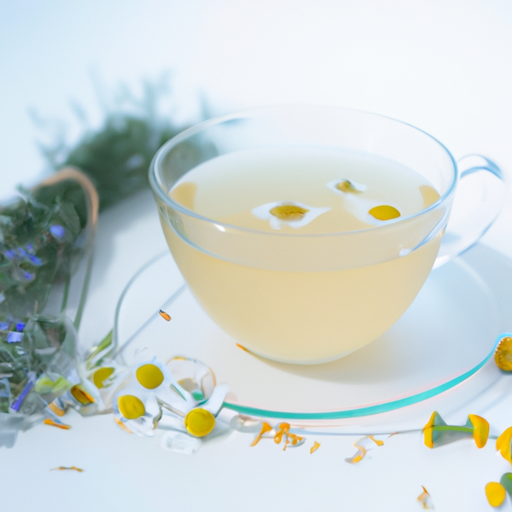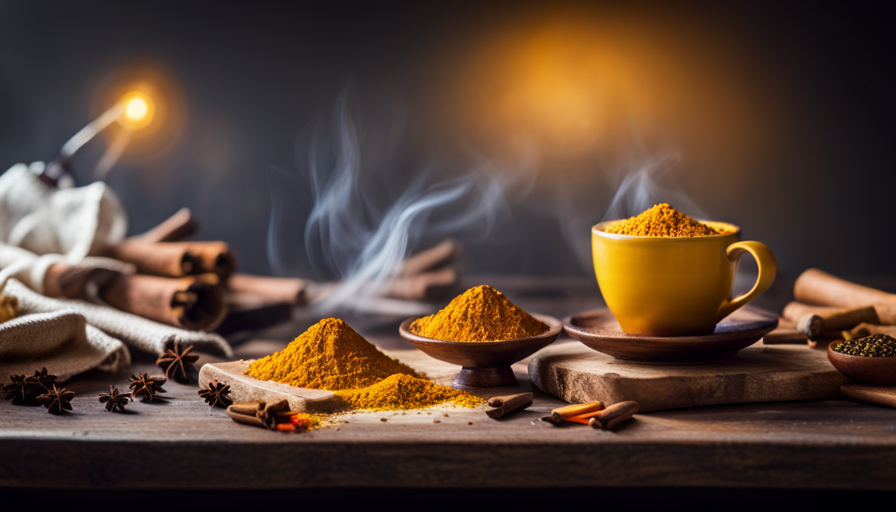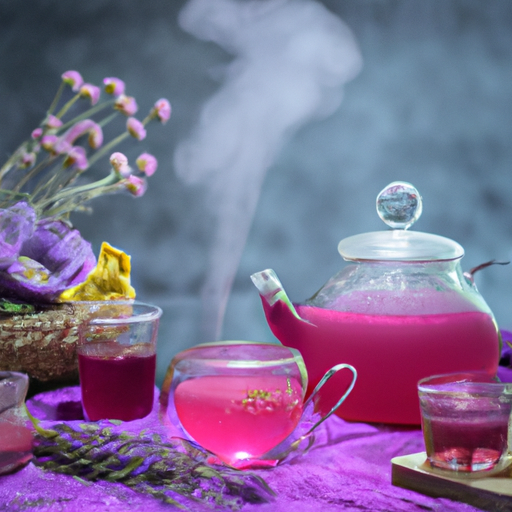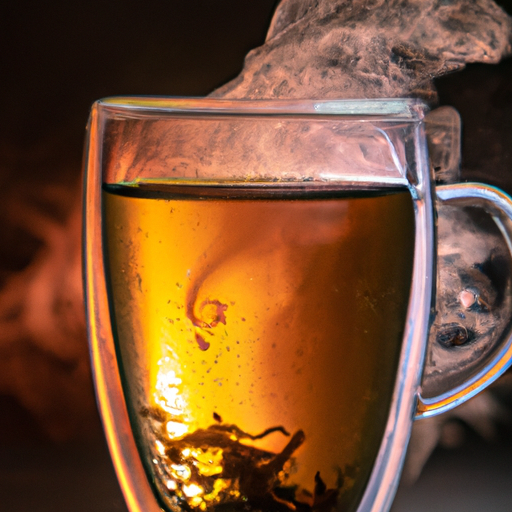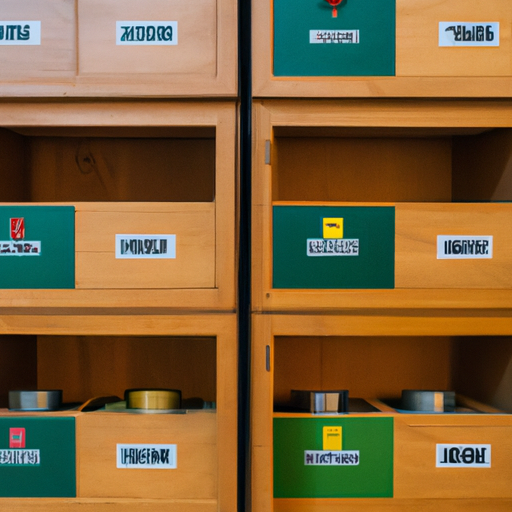In the realm of natural remedies, there is a beautiful array of plants that can provide relief for our bodies and treat our illnesses. Similar to a soft breeze carrying the fragrance of blossoming flowers, herbal teas have been highly valued for their effectiveness in soothing our coughs and alleviating our pain.
When it comes to finding the perfect herbal tea for a cough, nature has provided us with a bountiful array of options. From the delicate petals of chamomile to the fiery spice of ginger, each plant offers its unique healing properties.
In this article, I will explore the top herbal teas that are renowned for their effectiveness in soothing coughs. Through a holistic and evidence-based approach, we will dive into the benefits of chamomile, ginger, peppermint, thyme, licorice root, eucalyptus, and even the simple combination of honey and lemon.
So, let’s embark on this herbal journey together and discover the power of nature’s remedy for a cough.
Key Takeaways
- Chamomile tea is effective in reducing coughing and chest congestion, soothing the throat, and promoting relaxation and better sleep.
- Ginger tea has anti-inflammatory and expectorant properties, boosts the immune system, relieves throat irritation and coughing, and supports respiratory health.
- Peppermint tea aids digestion, reduces bloating, promotes relaxation and sleep, and has anti-inflammatory properties.
- Licorice root tea acts as a natural expectorant, soothes sore throats, clears mucus, supports respiratory health, and boosts immunity.
Chamomile Tea
If you’re looking to soothe your cough and relax, chamomile tea is the perfect choice! With its soothing properties and numerous health benefits, chamomile tea has been used for centuries as a natural remedy for coughs and respiratory ailments.
Chamomile is known for its anti-inflammatory and antispasmodic properties, which can help reduce coughing and ease chest congestion. It also has a calming effect on the body, promoting relaxation and better sleep, which is especially beneficial when dealing with a cough.
Additionally, chamomile tea is rich in antioxidants, which can support the immune system and aid in fighting off infections. So, if you want to find relief from your cough while enjoying a comforting and delicious cup of tea, chamomile is the way to go.
Speaking of soothing teas, let’s move on to the next one: ginger tea.
Ginger Tea
When you sip on a warm cup of ginger tea, you can almost taste the fiery spice as it soothes your throat and eases your discomfort. Ginger tea isn’t just delicious but also offers a range of benefits for cough relief. Here are five reasons why ginger tea’s the perfect remedy:
- Ginger’s got anti-inflammatory properties that can reduce throat inflammation and soothe cough symptoms.
- It acts as an expectorant, helping to loosen mucus and phlegm, making it easier to expel.
- Ginger tea’s rich in antioxidants, which can boost the immune system and help fight off infections.
- It can provide relief from throat irritation and itchiness, reducing the urge to cough.
- Ginger tea’s easy to make at home. Simply steep fresh ginger slices in hot water for about 10 minutes, strain, and enjoy.
As we turn our attention to peppermint tea, let’s explore how this refreshing herb can also bring relief to a cough.
Peppermint Tea
Not only does peppermint tea provide a refreshing burst of flavor, but it also brings soothing relief to a tickling throat. This soothing and aromatic herbal tea has been used for centuries to ease various ailments and promote overall well-being. Peppermint tea is known for its calming properties, aiding digestion and reducing bloating. It promotes relaxation and sleep, making it a perfect bedtime beverage. Additionally, it has been found to relieve menstrual cramps and headaches. The anti-inflammatory properties of peppermint tea also make it beneficial for treating skin conditions such as acne and eczema. So, next time you’re looking for a natural remedy for a cough, consider sipping on a cup of peppermint tea. Speaking of natural remedies, let’s move on to the next herbal tea: thyme tea.
Thyme Tea
Indulge in the invigorating aroma and healing benefits of thyme tea, which’ll leave you feeling refreshed and rejuvenated.
Thyme tea isn’t just a delicious herbal beverage, but it also offers a wide range of health benefits. It’s known for its antimicrobial properties, which can help soothe a cough and relieve respiratory congestion. Thyme tea contains compounds like thymol and carvacrol, which’ve expectorant and antispasmodic properties. This makes it an excellent choice for respiratory issues.
To make thyme tea, simply steep a handful of fresh thyme leaves in hot water for about 10 minutes. You can also add honey and lemon to enhance the taste and boost the tea’s soothing effects.
Transitioning to the subsequent section, licorice root tea is another herbal remedy that can provide relief for coughs and respiratory ailments.
Licorice Root Tea
Licorice root tea is a fantastic herbal remedy for soothing a sore throat and relieving coughing. It acts as a natural expectorant, helping to clear mucus from the respiratory system, making it easier to breathe.
Not only does it provide relief from coughing, but licorice root tea also supports respiratory health and boosts immunity, making it a valuable addition to your natural medicine cabinet.
Soothes Throat and Relieves Coughing
One herbal tea that’s particularly effective in soothing the throat and relieving coughing is chamomile tea. Chamomile has been used for centuries as a soothing herbal remedy for various health issues, including coughs and sore throats. It contains compounds that have anti-inflammatory properties, which can help reduce irritation in the throat and ease coughing. Additionally, chamomile tea has a calming effect on the body, promoting relaxation and better sleep, which is essential for healing.
When it comes to homemade cough remedies, chamomile tea is a great option. It’s easy to make by steeping dried chamomile flowers in hot water for a few minutes. You can add honey for additional soothing properties and flavor. Sipping on chamomile tea throughout the day can provide relief from coughing and soothe the throat.
Moving on to the next section about natural expectorants for clearing mucus, ginger tea is another powerful herbal remedy that can help with coughs and colds.
Natural Expectorant for Clearing Mucus
If you’re looking to clear mucus naturally, try incorporating ginger tea into your daily routine for its powerful expectorant properties. Ginger has long been used in traditional medicine as a natural remedy for coughs and respiratory ailments. It acts as a natural expectorant, helping to loosen and expel mucus from the respiratory system.
To further emphasize the benefits of ginger tea as a natural expectorant, consider the following table:
| Ginger Tea Benefits |
|---|
| Clears mucus |
| Relieves coughing |
| Soothes throat |
Ginger tea is a holistic, evidence-based solution for clearing mucus and relieving coughing. Its natural properties make it a great choice for those looking for herbal remedies to support their respiratory health. Additionally, ginger tea can boost immunity, helping to prevent future respiratory issues. By incorporating this natural remedy into your daily routine, you can promote a healthy respiratory system and support overall well-being.
Supports Respiratory Health and Boosts Immunity
To enhance your respiratory health and strengthen your immune system, incorporating ginger tea into your daily routine is like adding a powerful shield to your body’s defense system. Ginger tea is known for its numerous benefits for respiratory health and immunity. It contains anti-inflammatory properties that can help soothe irritated airways and reduce coughing. Additionally, ginger tea is rich in antioxidants that can boost your immune system, helping your body fight off infections and illnesses.
To incorporate ginger tea into your daily routine, simply steep a few slices of fresh ginger in hot water for about 10 minutes. You can also add a teaspoon of honey for added soothing effects.
Transitioning into the subsequent section about eucalyptus tea, let’s explore another herbal tea that can further support respiratory health.
Eucalyptus Tea
Try brewing some eucalyptus tea to soothe your cough and experience the refreshing relief it provides. Eucalyptus oil, derived from the leaves of the eucalyptus tree, is known for its numerous health benefits. When made into a tea, it can help relieve congestion, reduce inflammation in the respiratory tract, and ease cough symptoms.
To make eucalyptus tea at home, simply steep a few eucalyptus leaves in boiling water for about 10 minutes. You can also add a squeeze of lemon or a spoonful of honey to enhance the flavor and boost the tea’s soothing properties.
Honey and lemon tea, which we’ll discuss next, is another great option for relieving coughs and supporting respiratory health.
Honey and Lemon Tea
Indulge in the delightful combination of honey and lemon in your tea and discover the soothing effects it has on your throat and respiratory system. Honey and lemon tea is a popular remedy for coughs due to its numerous benefits.
Honey is known for its antibacterial and anti-inflammatory properties, which can help soothe a sore throat and reduce coughing. Lemon, on the other hand, is rich in vitamin C, which can boost your immune system and promote healing.
To make honey and lemon tea, simply boil water and add a tablespoon of honey and the juice of half a lemon. Stir well and sip slowly to enjoy the comforting warmth and healing properties.
Incorporating this herbal tea into your daily routine can provide relief and support your respiratory health.
Frequently Asked Questions
Can herbal tea completely cure a cough?
Herbal tea can help alleviate cough symptoms, but it may not completely cure a cough. Some of the best herbal teas for a cough include licorice, ginger, and thyme, which have soothing and expectorant properties.
How long should I steep the herbs in hot water to make the tea?
To make herbal tea, steep the herbs in hot water for 5-10 minutes. Different herbal teas offer various benefits for cough relief. For example, chamomile soothes the throat, while ginger and peppermint help alleviate congestion.
Are there any potential side effects of drinking herbal tea for a cough?
There are potential risks and interactions with medication when drinking herbal tea for a cough. It’s important to consult with a healthcare professional to ensure safety and avoid any adverse effects.
Can children and pregnant women safely consume herbal tea for a cough?
Children and pregnant women can safely consume herbal tea for a cough. However, it is important to choose the right herbs and consult with a healthcare professional to ensure safety and effectiveness.
Is it necessary to consult a healthcare professional before using herbal tea for a cough?
Consulting a healthcare professional before using herbal tea for a cough is essential. They can provide guidance on herbal tea effectiveness and ensure it is safe for you. Let’s prioritize our health and seek expert advice.
Conclusion
In conclusion, when it comes to finding the best herbal tea for a cough, the options are vast and varied. Chamomile tea offers soothing properties that can help calm a cough, while ginger tea provides anti-inflammatory benefits to ease throat irritation.
Peppermint tea acts as a natural decongestant, while thyme tea boasts antimicrobial properties to combat cough-inducing bacteria. Licorice root tea can help soothe a sore throat, and eucalyptus tea is known for its expectorant properties.
Finally, a simple blend of honey and lemon tea can provide soothing relief and help alleviate cough symptoms. With these evidence-based options, there’s a plant-focused solution for everyone’s cough needs.

